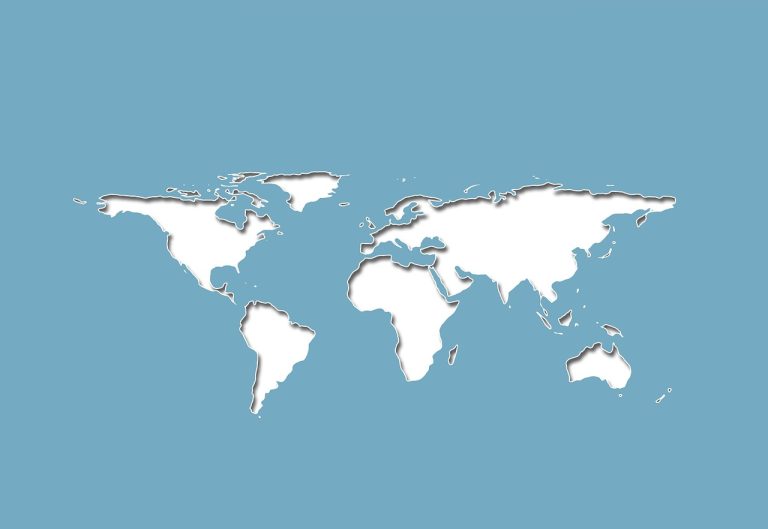
Fact-checking the Latest Statements from Filipino Politicians: A Comprehensive Review
In a rapidly evolving political landscape, the role of fact-checking has never been more critical. The Philippines, like many democracies worldwide, has seen a rise in political discourse that sometimes teeters on misinformation. This comprehensive review aims to shed light on the latest statements from Filipino politicians, analyzing their accuracy and impact on the public.
The Importance of Fact-Checking in Politics
Fact-checking serves as a cornerstone for democratic societies, enabling citizens to make informed decisions based on verified information. In the Philippines, where political rhetoric often influences public opinion, fact-checking helps maintain a level of accountability among those in power. It ensures that politicians remain truthful, fostering a culture of transparency and trust.
With the advent of social media, misinformation can spread like wildfire, making it imperative for independent organizations and journalists to dissect statements and claims meticulously. Fact-checking not only debunks falsehoods but also provides context, offering a more nuanced understanding of complex issues.
Recent Statements Under Scrutiny
In recent months, several Filipino politicians have made headlines with statements that sparked debate and necessitated fact-checking. Here, we explore some of these claims and the truth behind them.
Claim 1: Economic Growth Rates
A prominent senator recently claimed that the Philippines experienced the highest economic growth rate in Southeast Asia during the past year. While the country’s economy did show signs of recovery post-pandemic, this statement requires a closer look. According to the World Bank, the Philippines’ GDP growth was significant; however, it was not the highest compared to neighboring countries like Vietnam and Indonesia. This highlights the importance of contextualizing economic data rather than presenting it in isolation.

Claim 2: Healthcare Improvements
Another claim that drew attention was made by a government official who stated that the healthcare system had dramatically improved, citing increased hospital beds and better equipment. While there have been strides in healthcare infrastructure, reports from the World Health Organization indicate that challenges remain, particularly in rural areas. Many communities still lack access to essential services, underscoring the need for continued investment and reform.
Claim 3: Education Reforms
Education is a topic of significant concern, with a high-ranking official claiming that recent reforms had drastically improved literacy rates nationwide. While reforms have been implemented, data from the UNICEF show that literacy challenges persist, especially in remote regions. The COVID-19 pandemic has further exacerbated educational disparities, making it critical to assess such claims against comprehensive data.
The Impact of Misinformation
Inaccurate statements by public officials can have far-reaching consequences. Misinformation can shape public perception, influence policy decisions, and even affect international relations. When political leaders disseminate incorrect information, it undermines public trust and can lead to policy mishaps based on flawed premises.
Moreover, misinformation can polarize societies, creating divisions that hinder constructive dialogue. In a country as diverse as the Philippines, it is vital to foster a culture of informed debate, where citizens can engage with facts rather than fallacies.
Role of Media and Independent Fact-Checkers

The media and independent fact-checkers play a crucial role in maintaining the integrity of information. Organizations such as Vera Files and other local entities are at the forefront of scrutinizing claims, providing the public with verified information. Their work ensures that politicians are held accountable, and their statements are put to the test of truth.
These organizations employ rigorous methodologies, cross-referencing statements with data from reliable sources. By doing so, they offer clarity and counteract the spread of misinformation, ultimately contributing to a more informed populace.
How Citizens Can Discern Truth
While fact-checkers do their part, citizens too have a responsibility to discern truth from falsehood. Critical thinking and media literacy are essential skills in navigating today’s information landscape. By questioning sources and seeking multiple perspectives, individuals can form well-rounded opinions based on facts.
Engaging with diverse media outlets and supporting journalistic initiatives that prioritize truth can empower citizens. It encourages a culture of accountability, where public officials are aware that their statements will be scrutinized.
Takeaways
Fact-checking is an essential practice in upholding democratic values and ensuring that public discourse is grounded in truth. As Filipino politicians continue to make statements that shape the nation’s future, the role of fact-checkers remains indispensable. By holding leaders accountable and fostering an informed citizenry, fact-checking contributes to a more robust and transparent political system.
In a world where information is abundant yet often unreliable, the commitment to truth must remain unwavering. By supporting initiatives that prioritize accuracy and transparency, we can build a society where informed decision-making prevails, and democracy thrives.

Looking Forward: The Future of Fact-Checking in the Philippines
As the Philippines continues to navigate its complex political environment, the future of fact-checking seems promising yet challenging. With upcoming elections and ongoing political debates, the demand for accurate information will only increase. Fact-checking organizations must adapt to the dynamic landscape, employing innovative technologies and methodologies to stay ahead of misinformation trends.
One potential avenue is the integration of advanced technologies such as artificial intelligence and machine learning in the fact-checking process. These tools can quickly analyze vast amounts of data, identify patterns, and flag potential falsehoods for human review. While technology offers powerful capabilities, the human element remains crucial in interpreting data and providing context.
Collaboration and Community Engagement
Collaboration between media organizations, educational institutions, and fact-checking bodies can amplify efforts to combat misinformation. By working together, these entities can share resources, expertise, and strategies to enhance the overall effectiveness of fact-checking initiatives. Such partnerships can also lead to educational programs that empower citizens with the skills needed to critically assess information.
Community engagement is equally important. Encouraging public participation in fact-checking not only democratizes the process but also builds a network of vigilant citizens committed to truth. Initiatives that invite citizen journalists and volunteers can expand the reach and impact of fact-checking efforts, ensuring a wide range of perspectives and insights are considered.
The Role of Education in Strengthening Fact-Checking
Education plays a pivotal role in fortifying the fact-checking ecosystem. By integrating media literacy into school curricula, students can be equipped with the skills necessary to navigate the digital landscape critically. Understanding how to identify credible sources, recognize biases, and verify information are competencies that will serve future generations well in an increasingly information-saturated world.

Higher education institutions can also contribute by conducting research on misinformation, exploring its causes, effects, and mitigation strategies. Such scholarly work can inform policy decisions and guide the development of effective fact-checking practices.
Conclusion: A Collective Responsibility
Fact-checking is not the sole responsibility of any single entity; it is a collective endeavor that requires the participation of government, media, academia, and citizens alike. By fostering an environment where truth prevails, the Philippines can ensure that its democracy remains vibrant and resilient.
As the nation progresses, the commitment to truth must be unwavering. By supporting initiatives that prioritize transparency and accountability, the Philippines can build a society where informed decision-making flourishes, and democracy thrives. In this shared mission, we all have a role to play in upholding the integrity of information and safeguarding the future of democratic discourse.
The Role of Social Media Platforms in Fact-Checking
Social media platforms have become major conduits for information dissemination, making their role in fact-checking increasingly significant. Platforms like Facebook, Twitter, and YouTube have implemented measures to flag and reduce the spread of misinformation, but the efficacy of these measures often comes under scrutiny.
Collaborating with fact-checking organizations, these platforms can enhance their efforts by implementing robust algorithms that detect false information more effectively. However, the balance between curbing misinformation and preserving free speech remains a delicate issue that requires careful consideration and continuous dialogue among stakeholders.
Empowering the Public through Digital Literacy

Digital literacy initiatives are crucial in empowering the public to become adept at identifying false information. Workshops, online courses, and community programs can be instrumental in teaching citizens how to critically evaluate the content they encounter online. These programs can cover topics like understanding algorithms, identifying clickbait, and using fact-checking tools.
By investing in digital literacy, the Philippines can nurture a population that is not only informed but also proactive in seeking out truth. This cultural shift towards valuing verified information can significantly reduce the impact of misinformation.
Challenges and Opportunities Ahead
Despite the progress made, numerous challenges remain in the fight against misinformation. The sheer volume of content generated daily poses a significant hurdle for fact-checkers and technology alike. Additionally, the socio-political landscape can sometimes hinder efforts to promote transparency and accountability.
However, these challenges also present opportunities for innovation and growth. New technologies, collaborative frameworks, and educational initiatives can pave the way for more effective fact-checking strategies. By embracing these opportunities, the Philippines can lead by example in the global effort to combat misinformation.
Conclusion: A Path Forward
In conclusion, the landscape of fact-checking in the Philippines is at a pivotal juncture. With the collaborative efforts of media, technology, education, and citizens, the country can build a robust system that ensures the integrity of information. As misinformation continues to evolve, so too must the strategies to counter it.
The path forward requires a commitment to truth and a collective effort to uphold the values of transparency and accountability. By fostering an informed and empowered society, the Philippines can ensure that its democracy remains strong and resilient in the face of challenges. Together, we can create a future where truth is celebrated, and fact-checking becomes an integral part of public discourse.






